Broadcaster Kel Richards has lamented the “tragic” death of the Australian backyard in a segment on Sky News.
“Figures came out … in which they showed there are relatively fewer standalone homes being built and far more high rise apartment blocks being built”, Richards said.
“I call the death of the great Aussie backyard, I think it is tragic”.
“There are relatively fewer standalone homes being built and far more high-rise apartment blocks being built”.
“It started off with councils allowing developers to build blocks with a backyard of two metres in which you can’t play backyard cricket or backyard football”.
“Now even that’s gone and kids are being raised in these things 25 storeys above the ground”.
“I think it’s appalling for little kids to be healthy. They need to be able to run out the back door into their backyard, not be taken down 25 floors into a park three blocks away”, Richards said.
Kel Richards’ concerns are well-founded. The share of capital city dwellings constructed that are units & apartments has surged over the past 15 years, as illustrated below:
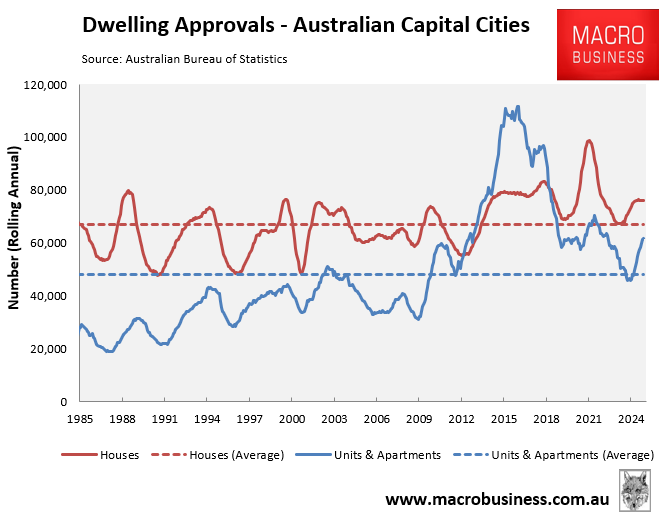
The share of capital city dwelling construction that are units or apartments increased from below 30% in the mid-1980s to a peak of nearly 60% in 2016, before retracing to 45% currently.
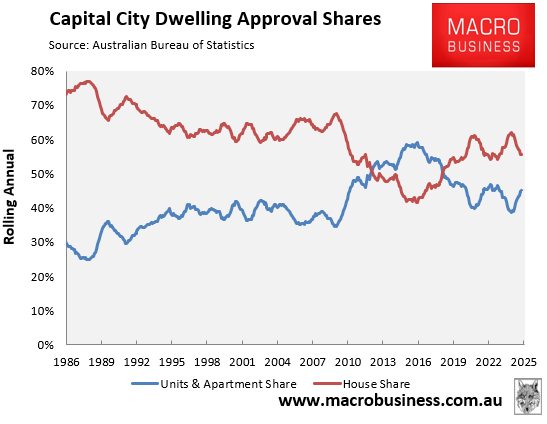
The East Coast capital cities have been the most severely impacted, as they experienced the highest share of apartment approvals.
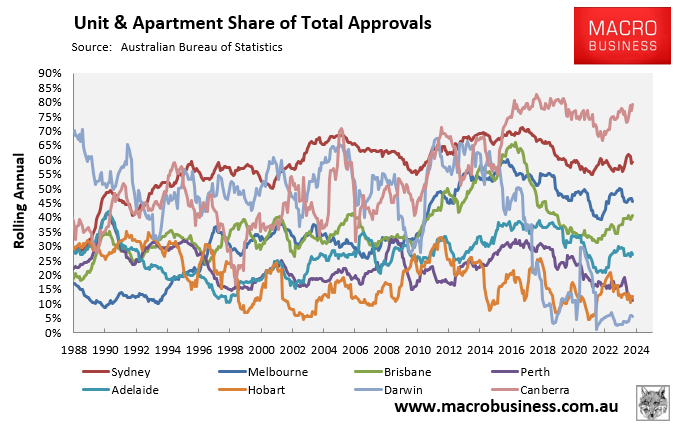
The death of the backyard is inevitable so long as Australia’s policymakers continue to flood our capital cities with migrants and the housing stock densifies.
For example, the Urban Taskforce projected that the share of detached houses across Sydney would more than halve to only 25% by 2057.
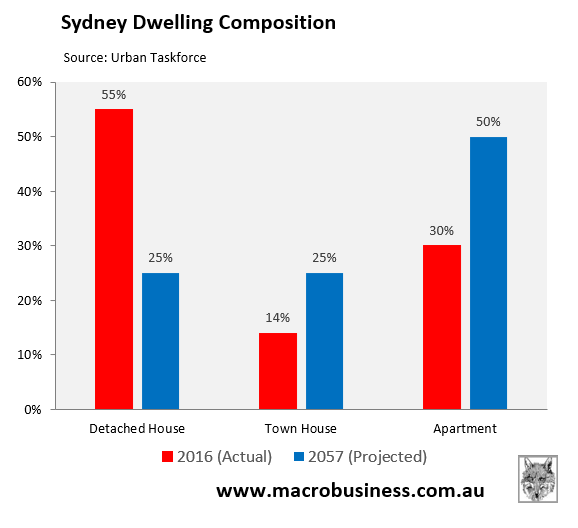
Other capital cities will experience similar densification as their populations balloon.
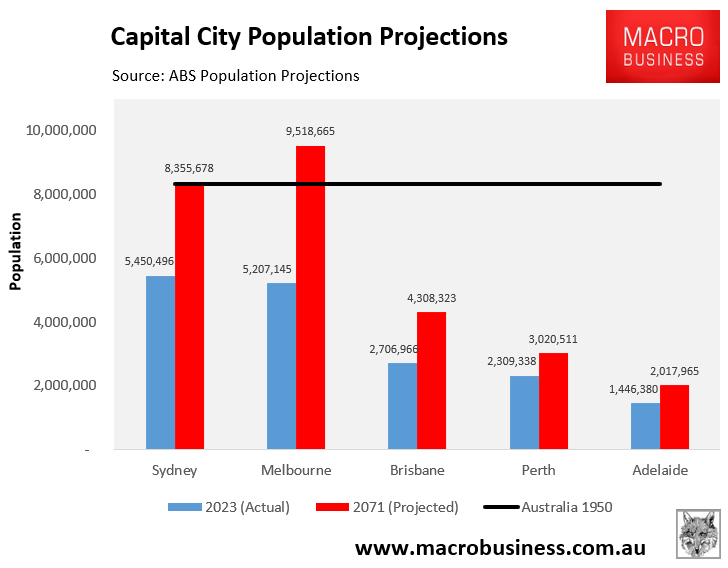
Perpetual high rates of net overseas migration will put upward pressure on house prices and rents, making housing smaller and less affordable.
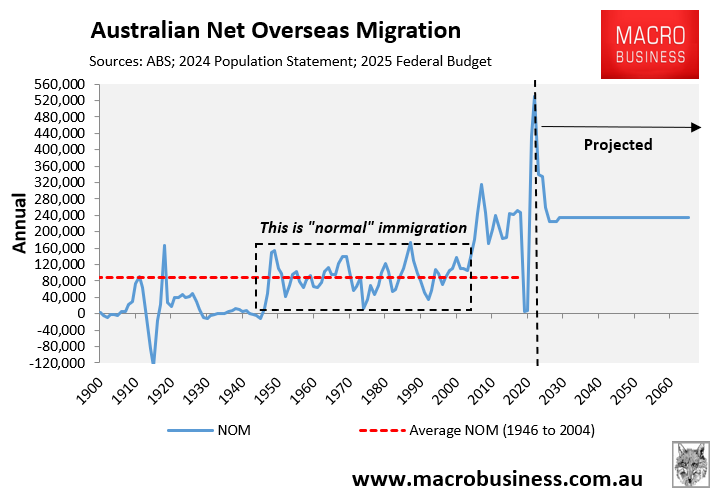
Detached houses will become especially scarce and expensive, resulting in fewer households having access to a backyard.

